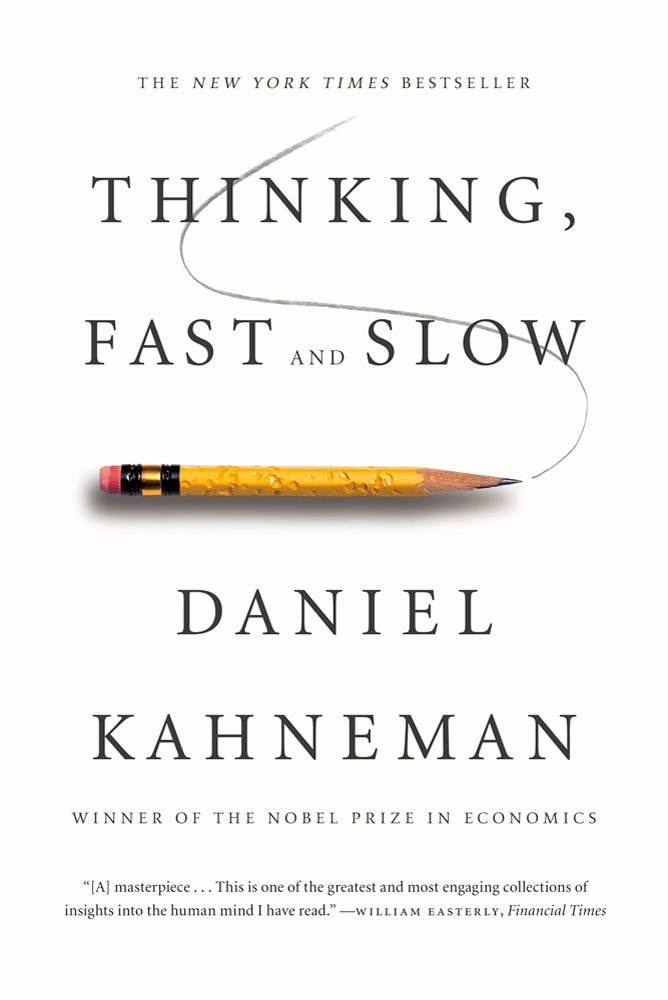 This is a dense book, over 18 hours of listening time. Where some non-fiction books are simply filler with only one core message, this book is packed with data and examples gathered over a lifetime of research. The Nobel-Prize-winning author has detailed out many of the ways in which human brains routinely fail. We’re excellent at some tasks, and have a very poor ability to do others.
This is a dense book, over 18 hours of listening time. Where some non-fiction books are simply filler with only one core message, this book is packed with data and examples gathered over a lifetime of research. The Nobel-Prize-winning author has detailed out many of the ways in which human brains routinely fail. We’re excellent at some tasks, and have a very poor ability to do others.
Here’s some key takeaways for me from this book:
- Humans are terrible at remembering duration of both pain and pleasure, but instead remember the peak and final moments.
- We are of two minds – an impulsive instinctual mind, and a difficult to engage methodical mind. The methodical mind can reach correct answers but is often influenced unknowingly by the instinctual mind.
- When faced with a difficult and complicated question, the impulsive mind routinely substitutes a simpler question. Then the rational mind back-calculates and rationalizes the way to the answer arrived at by the simple question.
- From stock picking to relationship advice, simple heuristics are often superior to both “expert knowledge” and complicated systems.
There is plenty more, and eventually I might give it a second listen. I frequently had to stop listening and digest what I’d heard. Highly recommended.
Thinking, Fast and Slow
